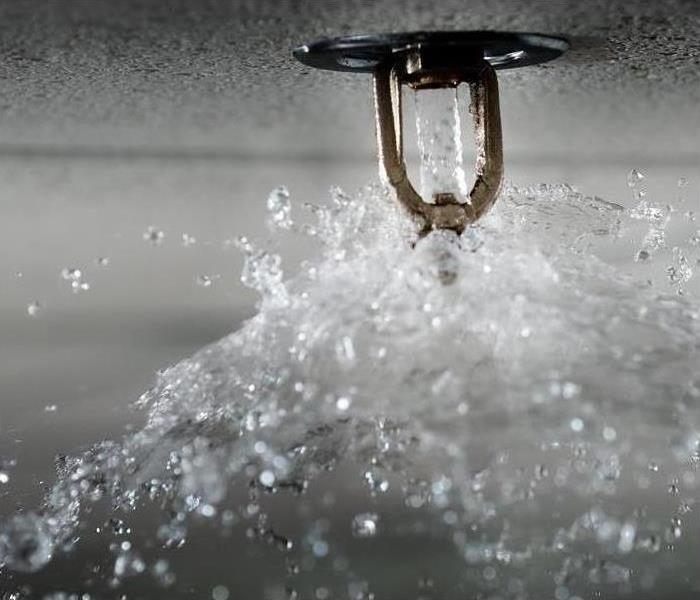Do Fire Sprinklers Cause Water Damage?
4/21/2020 (Permalink)
Do Fire Sprinklers Cause Water Damage?
The activation of a commercial fire safety system may result in water damage. When a system activates, only the sprinklers in the area experiencing high temperatures start to spray. Depending on the size of a fire, this may lead to more or less water damage. Find out more about how fire sprinkler systems activate in response to a fire at a building in North Aurora, IL.
Sprinkler Head Activation
Sprinkler heads activate individually based on the temperature of the surrounding area. Most sprinklers follow the same activation procedure:
- Air temperatures rise to the range of 135 to 165 degrees Fahrenheit
- A liquid-filled bulb in the sprinkler bursts
- The sprinkler starts to spray water from pressurized pipes
A fire suppression system only activates sprinklers that detect high temperatures to limit unnecessary water damage. Sprinklers are not activated by smoke or other indications of fire. The system will not shut off until it has been manually turned off.
Sprinkler Water Dispersion
A single commercial fire sprinkler can release over 20 gallons of water per minute. The pipes of a sprinkler system are charged with water to provide an instantaneous response to elevated temperatures. Water sprays forcefully over the surrounding area to suppress or extinguish a fire. This may result in water damage but should reduce the extent of fire damage.
Additional Water Damage
A fire hose can introduce hundreds of gallons of water into a structure in a matter of minutes. Severe water damage is more likely to result from a fire suppression effort that requires hoses. Fire sprinkler cleanup involves pumping out standing water and drying the affected area. Damage caused by the fire can then be cleaned.
A fire sprinkler system should only cause minor water damage while minimizing fire damage. It is still essential to extract standing water and promote drying prior to cleaning and restoring fire and smoke damage.




 24/7 Emergency Service
24/7 Emergency Service
